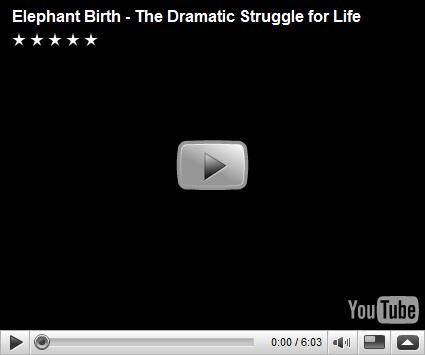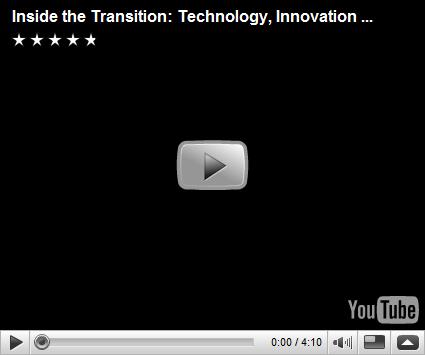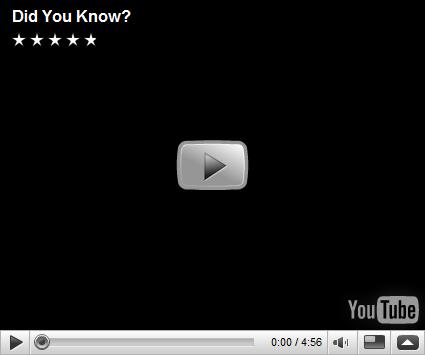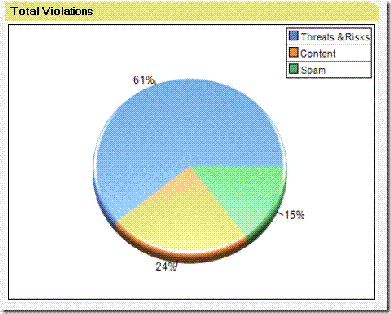Archive for the ‘Science and Technology’ Category
About Van Jones and Partisan Politics
Published under Leadership, Philanthropy, Science and Technology, United States Sep 06, 2009Very few people in my life have struck me as much as Van Jones for being as exceptionally inspiring, as extraordinarily sincere in their commitment to help improve the lot of others, and as leaders with such well rounded qualifications as Van’s.
Van is a fellow "Young Global Leader" from the World Economic Forum and the subject of a Skoll/Sundance "Stories of Change" documentary. I have known him for many years in very intimate settings, including in international settings where someone else could have been negative about the US or extreme in some sense, but this was never the case with Van Jones.
Van is all about positively inspiring others – and he does that like few others. There is not one bone in Van that is not authentic.
His resignation from the US Administration today – apparently provoked by dirty partisan politics – is a sad step for all Americans. He had been appointed as the "Green Czar" with a brilliant concept of tackling two problems at once with an entrepreneurial solution: overcome disenfranchisement and unemployment of inner-city youth, and address climate change challenges and lack of US competitiveness in the green industry by building programs that train young people with green manufacturing and green industry skills.
Whoever engineered these silly attacks may have won a battle but will lose the war: Van will not be stopped from doing great work for America and the world, and this forced attention at least puts a spotlight on an extraordinary public leader that deserves our support.
People ask me why I hate partisan politics – this is Exhibit #1.
Government 2.0
Published under Entrepreneurship and Management, Innovation, Science and Technology, United States Aug 09, 2009My friend Andrew McLaughlin had pointed me to this very cool video and this post a while back – re Technology and the White House transition – and I only now got to see it. The way the new techies in the White House are thinking about government and governance is really innovative – they are literally finding ways to increase transparency, efficiency and value-creation by combining the power of government with technology and entrepreneurial thinking. Take a look at the idea in minute 1:55:
Bridging the Real and Virtual Worlds in Gaming
Published under Innovation, Media and Alternative Media, Science and Technology Aug 03, 2009Interesting article on an effort to bridge the frontier between the real and virtual worlds of gaming and entertainment, an area that interests me a lot.
Progression of Information
Published under Anthropology, China, Global, Innovation, Israel, Life, Science and Technology Jul 10, 2009In an interesting note about the gap between knowledge and learning, Gidi Grinstein pointed me to this amazing video that highlights the quick pace at which information is growing. This year, more information will be created than was generated in the prior 5,000 years.
Governments should be a lot more assertive about rooting out spam, phishing, viruses, and scams. While private sector solutions address this, the amount of waste that it is creating on the system – and just the environmental cost of added server activity for all this dirty trash – is enormous.
Below is a picture of the amount of good content (24%) VS. Spam and Threats that were blocked by our company recently. It is staggering.
Ecological Footprint for One Planet
Published under Economics, Environment, Global, Science and Technology Apr 18, 2009One of the best efforts I have seen at explaining the way we are consuming and living beyond sustainability in this world comes from The Global Footprint Network. At the Skoll World Forum a couple weeks ago, Mathis Wackernagel handed me a business-card sized brochure that very poignantly and clearly explains how consumption in the developed and oil-producing world is depleting our globe in measurably dangerous ways. You should visit the page tracking human development growth and related ecological footprint growth. Their solution, not easy to implement but succintly showing the only way forward, is to aim for sustainable human development.
You can take a quiz to establish and track your own human footprint.
Compostable Packaging Making Progress
Published under Environment, Innovation, KIND Snacks, New Product Development, Science and Technology Apr 18, 2009The holy grail for environmentally conscious manufacturers and consumers is truly bio-degradable effective packaging. While the biggest threat is in plastic bottles and packaging materials that overwhelm our landfills, even small wrappers add up.
The challenge to manufacturers is that the very things that make wrappers good – impermeability, sealing out oxygen to prevent oxidation and decomposition – are also what makes the wrappers hard to decompose. And if you try to use corn-based bio-degradable wrappers, exposure to moisture can make the wrapper protection degrade and be ineffective. At KIND we keep looking for solutions that could enable us to use bio-degradable wrappers but have yet to find the answer (if anyone has any technology or ideas, please let me know).
Frito-Lay just announced that the outer layer of its Sun Chips will use compostable packaging. That is nice, but what is really interesting is their commitment that within 1 year, they aim to also use compostable packaging for the bags’ interior. If they really achieve it, that will be a remarkable step.
The Akashic Record
Published under Anthropology, Art, Interesting Random Stuff, Introspection, Science and Technology Mar 29, 2009In reply to my post, Mapping Your Life’s Journey, I got a really interesting email from my friend Jonathan Harris, the cool artist whose work is as fascinating as this note:
There is a centuries-old idea coming from the Hindu tradition, of "The Akashic Record", which is said to be metaphysical plane where all information is stored — every thought, action, interaction, and idea that has ever occurred. A kind of cosmic filing system.
There is debate over whether The Akashic Record is already completely written (and we simply follow it, like actors following a script), or whether it gets updated every instant with new information (and free will exists).
It is believed that when we dream, we access the Akashic Record, and that this is why dreams often contain either future prophecies, or seemingly random events from long ago that haven’t been thought of for years (because in the Akashic Record, all things are equally simple to access, like searching on Google, or, perhaps more appropriately to dreams, clicking "random page").
It is also believed that tapping into the Akashic Record is our source of energy, and that this is why our bodies need REM sleep to function (REM sleep being the time we access this record).
Whether you believe in this stuff or not, I agree with Daniel that we are fast approaching a time when our technology will essentially create the Akashic Record for us. You could say that this will happen in "another dimension", as the meta-layer of aggregate online information could be considered as such.
I am very interested in seeing this happen, and believe that it will (if the world doesn’t end first, that is).
Jonathan
P.S. Apologies to any purely deductive rationalists on this list

Mapping Your Life’s Journey
Published under Anthropology, Innovation, Interesting Random Stuff, Introspection, New Product Development, Science and Technology Mar 26, 2009Often in life I am sure you wonder if you had met a person before. Have our lives crossed paths before a more recent episode? When was the first time we met? Where we together in a particular place – whether at school, or at a conference, or talk, or during our childhoods? Could you even rewind a part of your brain and see what you said to that person when you first met them? I daydreamed about a sci-fi future where the “grid” could keep all your information about every place you’ve been, and what your thoughts and experiences and interactions were like.
Then I realized that a lot of this could already be done rather easily NOW.
All you need is a GPS mapping device with a time-mapping database. Your iphone or blackberry could have an application that every 5 minutes or every hour or every day (depending on your preferred settings and subscription/storage capacity) could store your GPS location at that particular time.
Three or thirty years later, you could wonder openly with your date, or an employee or a colleague if you had met before, or where your lives had intersected before, and you’d just sync your databases to find the crossing points, if any, that exist. You could make some pieces private or public, open or closed. But you’d have the ability to trace back steps at important points, quite simply.
At a formative moment, you could even connect a blog journal or video entry to your geo-time-map.
This would not only be fun and functional, but also existentially transformative.
We always are “surprised” at how small this world is, and how enormous a coincidence it is that you find a friend in a far away random place.
In fact, I have always thought that the laws of numbers make these encounters quite probable, and most likely there are many more opportunities for interactions among people you know, whose paths you cross by milliseconds without knowing it. If you could look at your grid and compare it with a friend’s, or with all your universe of friends, how many amazing “coincidences” wouldn’t you find – when you opted to?
Perhaps Doppler or GoogleMaps or Facebook or a new web/business platform you have could take advantage of this idea.

















